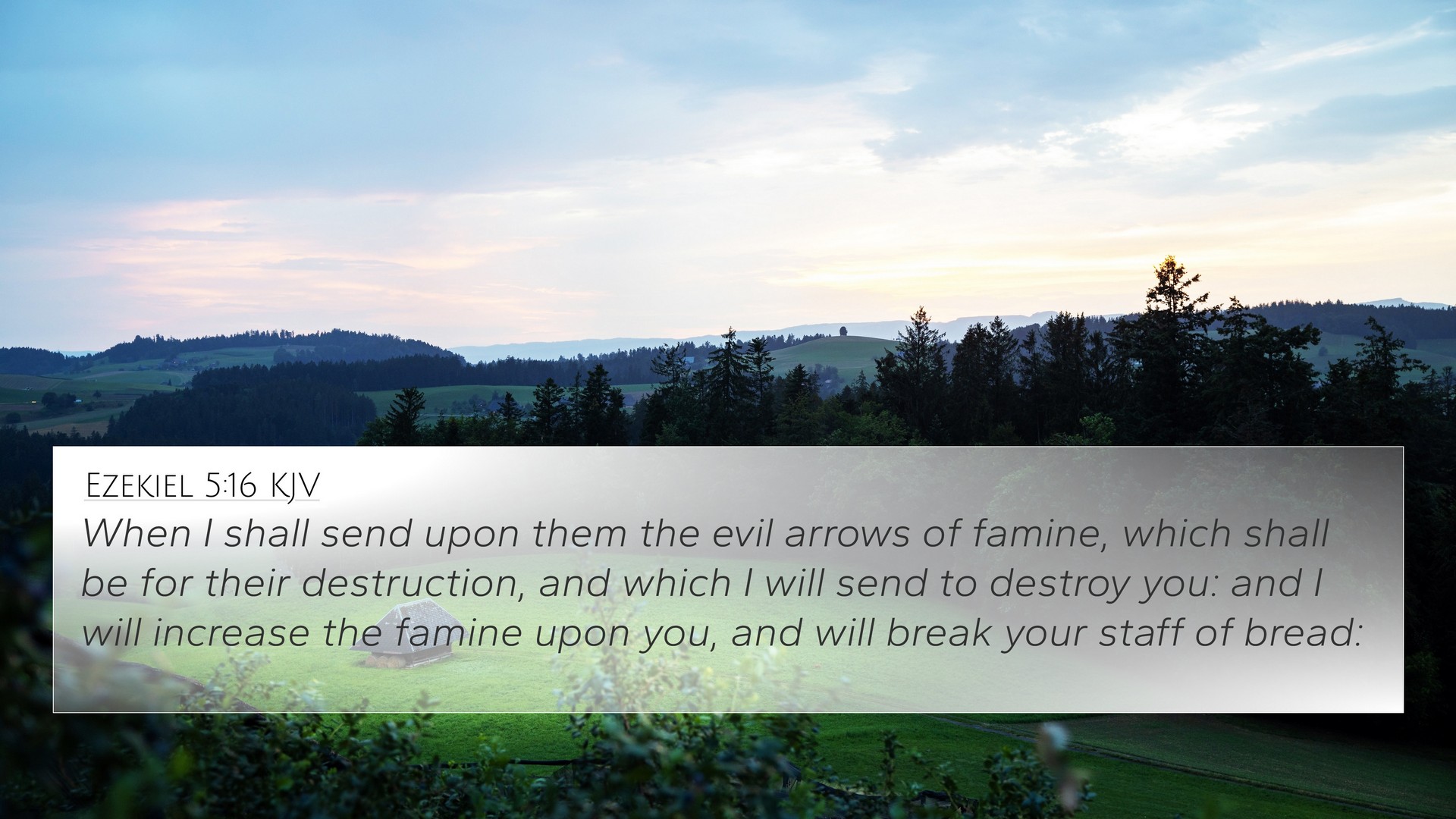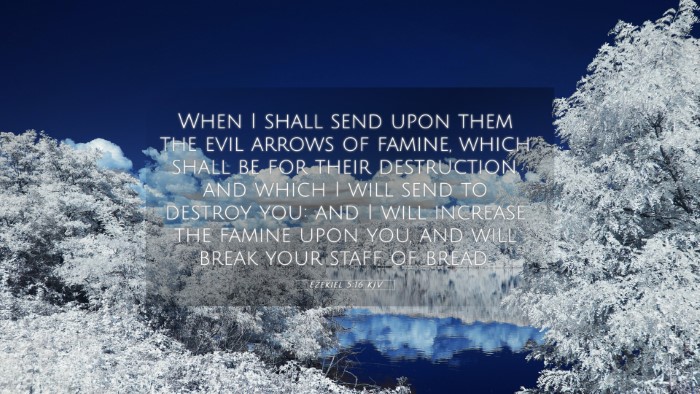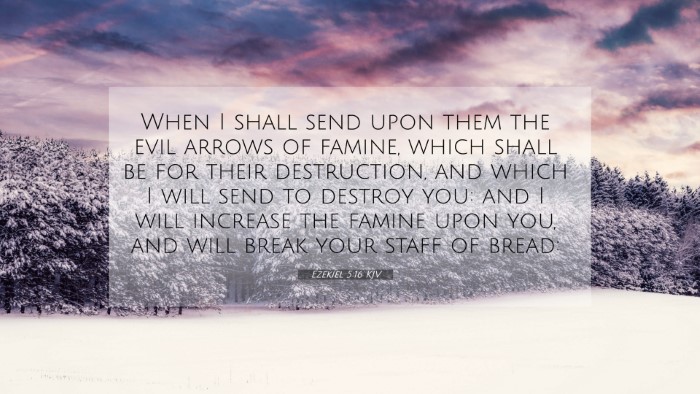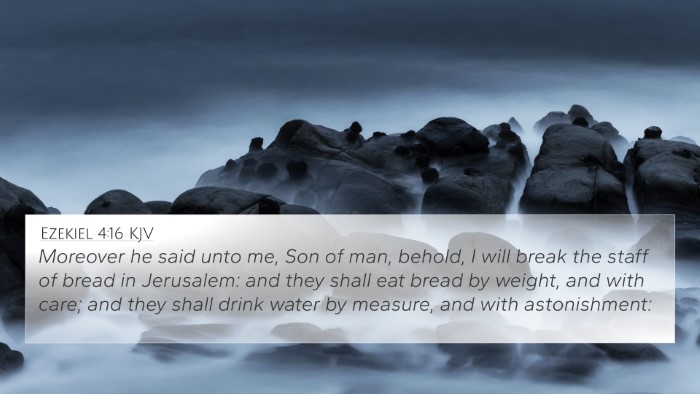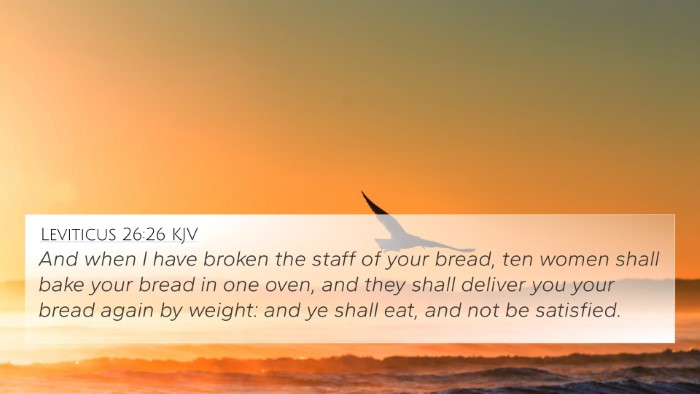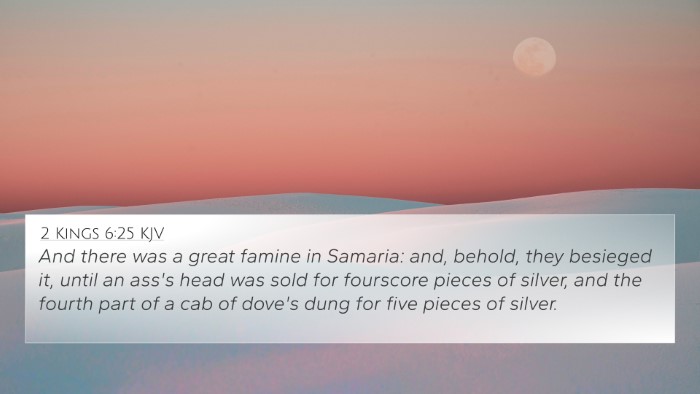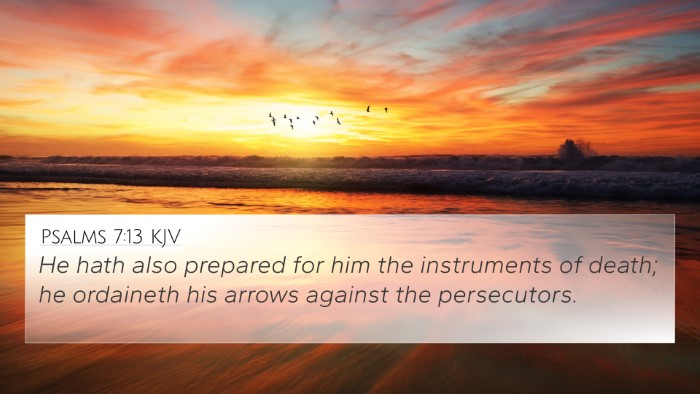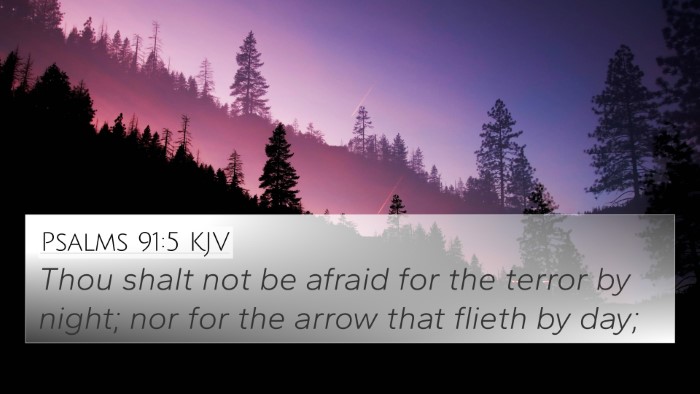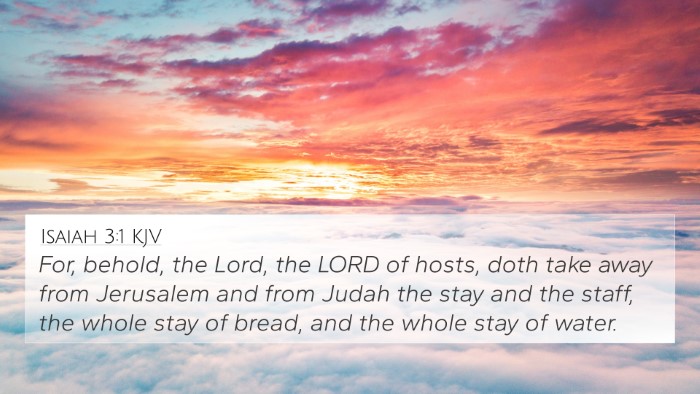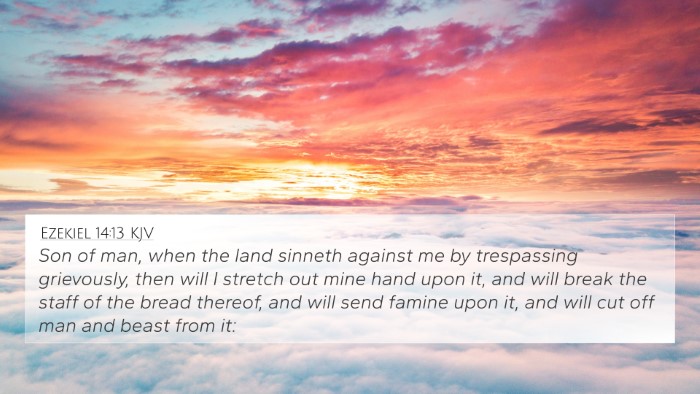Ezekiel 5:16 - Interpretation and Meaning
Description: Ezekiel 5:16 states, "When I send upon them the deadly arrows of famine, which shall be for their destruction, and which I send to destroy you; I will increase the famine upon you and will break your staff of bread."
Contextual Overview
This verse is a part of Ezekiel's prophetic discourse focusing on the judgment that God will execute upon Israel. God, through Ezekiel, is expressing the severity of the impending famine as a divine punishment for the nation's sins and unfaithfulness. In this context, famine symbolizes not just a physical lack of food but underscores spiritual desolation and separation from God.
Commentary Insights
Matthew Henry's Commentary
Matthew Henry emphasizes the dire consequences of Israel's rebellion against God. He explains that the "deadly arrows of famine" represent the sharp and unforgiving nature of God's judgment, designed to lead the people to repentance. Henry elaborates on how God’s chastisements serve to draw His people back to Him, explaining it as a method to break their reliance on worldly sustenance.
Albert Barnes' Notes
Albert Barnes notes that the "staff of bread" signifies the essential provisions that sustain life. The breaking of this staff indicates a total disruption of the Israelites' livelihood. Barnes emphasizes that God's intention is not just punitive but also restorative, aimed at reorienting the people's hearts back to Him. He draws parallels to Deuteronomy 28, where the blessings and curses associated with obedience and disobedience are laid out.
Adam Clarke's Commentary
Adam Clarke provides detailed language analysis, stressing that the arrows of famine being "sent" depict a direct action from God. He explains that this verse illustrates both a literal and metaphorical starvation, where physical want will accompany spiritual desolation. Clarke's insight also touches on the smoke of lamentations that rise from the consequences of national sin, reflecting wider themes of communal responsibility in relation to divine judgment.
Thematic Connections
Examining Ezekiel 5:16 leads to numerous thematic connections within the Scripture. The dialectic of famine and divine retribution is highlighted in various Scriptures. Below are notable cross-references:
- Leviticus 26:26: God warns of breaking the staff of bread as a consequence of disobedience.
- Deuteronomy 28:53-57: Describes the horrors of famine that will strike Israel as punishment for sin.
- Jeremiah 14:12: The Lord states that He will not accept the plea of the people during a time of famine.
- Lamentations 4:9: Highlights the severity of starvation among God's people as a form of judgment.
- Amos 8:11-12: Prophesies a famine not of bread, but of hearing the words of the Lord.
- Matthew 24:7: Jesus speaks of famines in the context of the end times, linking judgment and divine agency.
- Revelation 6:5-6: The breaking of seals leads to famine, illustrating cosmic judgment.
Cross-Referencing and Comparative Analysis
Understanding Ezekiel 5:16 is enriched when viewed through the lens of cross-referencing Biblical texts. The plate for assessing the connections between Bible verses reveals a rich tapestry of themes regarding divine judgment, often drawing parallels in how God addresses human sin through tangible suffering.
Tools for Bible cross-referencing can include the use of a Bible concordance or Bible cross-reference guide. These resources facilitate cross-reference Bible study and assist believers in identifying themes that resonate throughout Scriptures.
Conclusion
In Ezekiel 5:16, we find a stark reminder of the seriousness of sin and the profound implications of distance from God. The parallel messages woven through additional passages underline the necessity of repentance and the importance of maintaining one’s relationship with the Lord. As such, this verse serves as both a warning and an invitation to return to God through sincere supplication.
